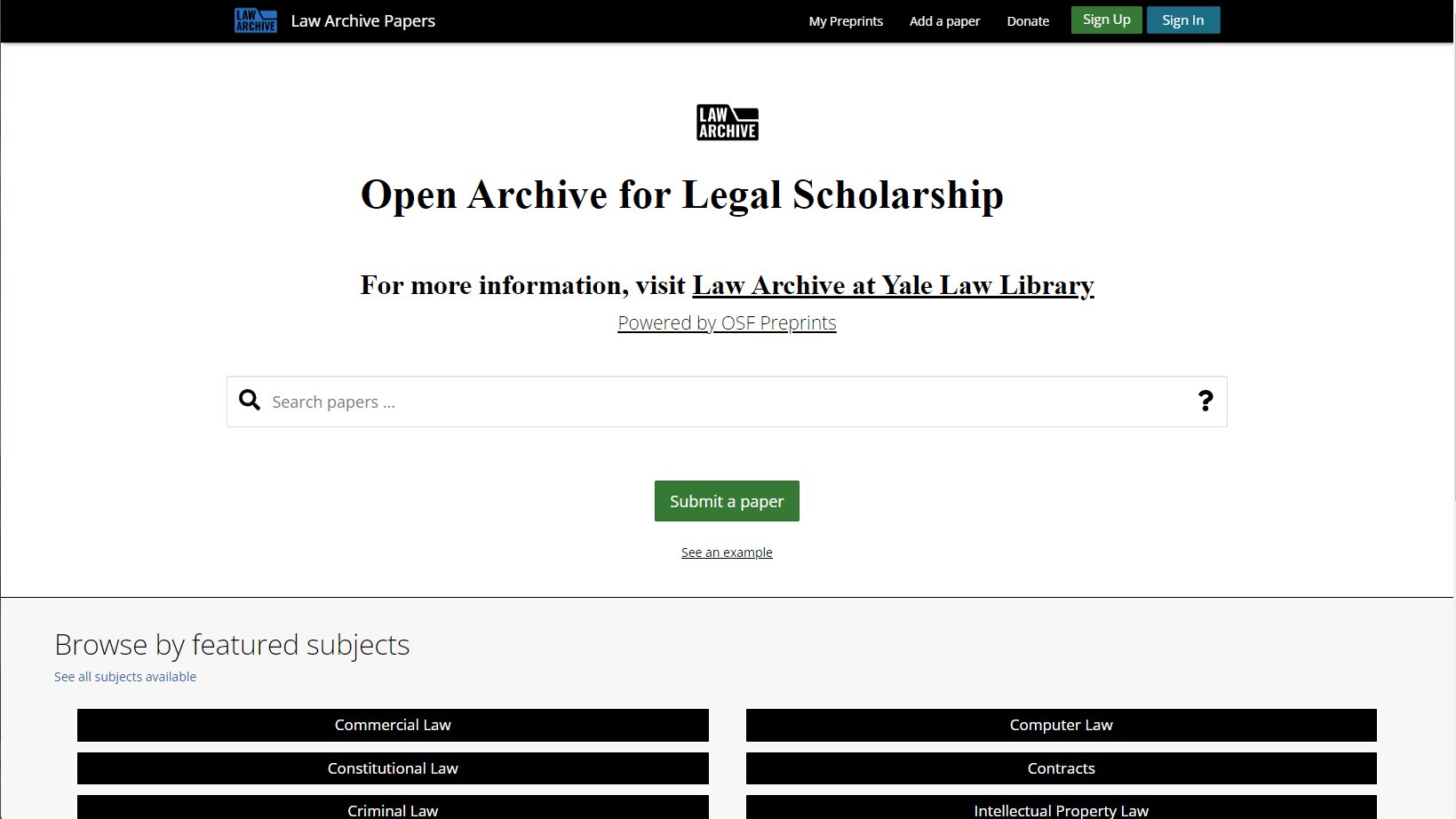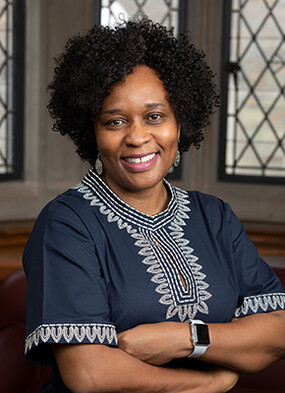With the goal of making legal scholarship freely available outside of “proprietary and predatory frameworks,” Yale Law School has launched Law Archive, a free and open archive for publishing legal scholarship.
Developed by Yale’s Lillian Goldman Law Library and the Center for Open Science (COS), which provides the OSF Preprints platform that hosts the site, the archive enables researchers and scholars to upload research plans, preprints (articles yet to be peer reviewed), fully published papers, and collected data.
“There are limited options for researchers and scholars to deposit scholarship in a repository without bearing some type of cost, either monetarily or by ceding control over their data,” said Femi Cadmus, law librarian and professor of law at Yale, who leads Law Archive’s advisory board and steering committee.
“The primary goal of Law Archive is to break down barriers to access to legal scholarship and information by developing a truly free and open platform for the sharing of research,” she said.
Related: LawNext Episode 43: The AALL’s Femi Cadmus on the Changing Face of Law Librarians.
The library said that the archive’s development was inspired by its commitment to access to justice initiatives related to “filling gaps in the availability of free and open legal information outside of proprietary and predatory frameworks.”
Its development means that researchers, scholars, and the general public now have a reliable source for access to current and historical legal commentary and analysis found in legal scholarship.
Only Platform of its Kind
According to the library, this is the only free open access platform for legal scholarship that integrates collaboration tools, data storage, and sharing of legal scholarship.
Those collaboration features make it possible for researchers from different institutions to work on projects in a central project space, with the ability to integrate tools such as Dropbox, Google Drive, and GitHub. Law Archive supports and promotes transparent and reproducible research, a requirement of many funding agencies.
For visitors to the site, they can search for papers using keywords or by browse papers by their subject. Either when searching or browsing, filters allow the user to refine results by data range and other factors.
“The importance of free, reliable, and open access to legal scholarship and information is critically important,” said Yale Law School Dean Heather K. Gerken. “Yale Law School is invested in pushing forward innovative initiatives like Law Archive that provide equitable access to legal information.”
The archive is supported by an advisory board led by Cadmus and composed of law faculty and librarians from six institutions. It is managed administratively at the Yale Law Library by a steering committee and co-administrators Michael VanderHeidjen, associate director, scholarly & research services, and Nor Ortiz, technology & research librarian.
A Successor to LawArXiv
This is not the first time an archive was launched to promote open access to legal scholarship. In 2017, I wrote here about the launch of LawArXiv, a website devoted to preserving open access to legal scholarship.
That initiative was developed by the Cornell Law Library in collaboration with three law library organizations, at least partly in response to the 2016 acquisition of the Social Science Research Network (SSRN) by publisher Elsevier, and concerns among scholars that SSRN’s free access would get locked behind a paywall.
Like this latest archive, that earlier effort was hosted on the OSF Preprints platform.
But in 2021, LawArXiv said it would no longer accept new article submissions, effectively shutting down.
According to a 2021 post on TSLL TechScans, a law librarian blog, the reason for the shutdown was, at least in part, the limitations of the OSF Preprints platform and the unwillingness of its developer, COS, to support new features requested by the LawArXiv steering committee.
On top of that, COS had instituted a new hosting fee starting in January 2021. That left LawArXiv’s backers debating whether it was worth paying the fee knowing the platform lacked the features they believed they needed for the archive to grow.
“After extensive research and discussion of various options, the LawArXiv Steering Committee ultimately decided to end the partnership with COS,” the blog reported.
COS addressed this issue in a post it published earlier this week announcing the new Yale archive. It says that, since the closing of LawArXiv, its OSF Preprints platform has undergone significant enhancements.
“These improvements are designed to enrich the user experience, foster community engagement, and expand the discoverability of preprints and published papers,” the COS post said.
It also said that Yale’s oversight of this archive is significant in terms of its long-term viability.
“With the transition to a model under the Yale Law Library’s umbrella, there is an unwavering commitment to hosting free and open legal scholarship, supported by an advisory board of librarians and law faculty,” the post said. “This structure aims to streamline decision-making and enhance the platform’s ability to serve the legal academic community for years to come.”
 Robert Ambrogi Blog
Robert Ambrogi Blog
